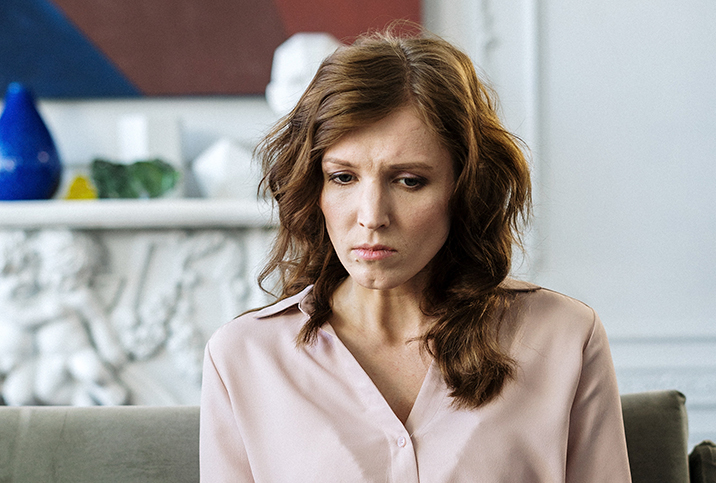How to Manage the Emotional Stages of Divorce

Regardless of what your marriage looked like during its various ups and downs, and whoever was responsible for what, including the initiation of its dissolution, the process of divorce and its aftermath can be incredibly stressful.
You're going to experience a complex range of emotions—from joy and relief to pain, rejection and anger—and managing all of them may feel insurmountable. Add in reactions from family and friends, and it's no surprise you're feeling overwhelmed and completely unsure of how to move forward.
These are normal emotional reactions to divorce. Thankfully, you're not the first to go through this situation. Experts have advice on how to manage your feelings and tackle what comes next.
The (nonlinear) stages of grief
Advice about surviving divorce often mentions the five stages of grief, which makes sense. As San Diego psychotherapist Cecille Ahrens, L.C.S.W., pointed out, even when you know a divorce is necessary, you still must mourn the loss of how you initially thought the relationship would turn out.
While many people think of the grieving process as a series of stages to use in a linear fashion, from denial to anger to bargaining to depression, before finally sliding into acceptance, everyone experiences divorce (and grief, for that matter) differently. The stages can occur in any order.
While anger often bubbles up throughout the process, Ahrens believes it distracts from actual pain.
"The sadness means you really have to come to terms with the fact that it's over," she explained. "Even if you're the one who initiated it, there's still sadness. Even if you are feeling relief, there's still an element of sadness, and it's a normal, healthy response."
Even if you aren't grieving for the relationship itself, you may be grieving for what the marriage represented.
"People grieve what they thought it was supposed to be, what they thought it was going to be," Ahrens said. "There were these unconscious and conscious visions they had for their life…expectations they had to let go of."
In walking away from a marriage, people are walking away from familiarity or certainty that came with it as well as the security built into the relationship.
Your sense of self also undergoes a transformation.
"There's also the loss of yourself, of your identity," said psychotherapist Lisa Brateman, L.C.S.W., based in New York City. "I was a husband. I was a wife. I lived in the suburbs. I spent all these years getting here, and now my whole life...Who am I in relation to anything? You're a single person, but you haven't been a single person in a while. You're not a 'we' anymore."
Another common emotion for people experiencing divorce is shame, often related to a sense of failure. Social stigma around divorce leads folks to experience shame based on the preconceived notions of their situation, Brateman said. She pointed out that you may often hear other people's voices in your head, saying you should be doing everything you can to make the marriage work.
"It really, really eats at your self-confidence, especially at a time when you need more confidence," Brateman noted.
How to care for yourself in the face of emotions
People experience divorce differently, and each individual should manage the emotional upheaval in their own way.
"It's so unique to a person's history and their personality and their circumstance because support is so key," Ahrens said. She added that a person's ability to successfully navigate this time depends on elements such as childhood experiences, history of trauma and loss, cultural background, religious background, level of resilience and coping skills.
No matter the person, both Ahrens and Brateman agreed that having a strong support system is essential. While both are proponents of therapy, they acknowledge support can take many forms.
"Some people go to their rabbi or their priest," Brateman said. "Some people go to support groups. Some find support in family and friends."
In support groups, you can find empathy and understanding from people who have been through similar experiences. Even when companions in your life do not have firsthand experience, they can at least provide comfort in knowing you're not alone.
Everyone needs to identify the coping skills that work best for them, whether it's writing a journal, exercising or starting a new hobby
However, everyone needs to identify the coping skills that work best for them, whether it's writing a journal, exercising or starting a new hobby. These survival mechanisms can illuminate a new way of relating to your grief so you're better able to tolerate the bumpy road ahead.
Later in your grief process, Ahrens said you can start to look inward, performing the deeper work of forming concrete desires about what you want in relationships.
"What are you willing to do to be part of a healthy dynamic?" Ahrens said you should be asking yourself.
However you decide to move forward, Brateman emphasized that you shouldn't get caught up in worrying about what society expects from you.
"What are your needs?" Brateman asked. "How do you want to live in the future? There's more than one choice out there."
Whichever way you move through this process and however it feels, Ahrens said it's important that people know their feelings are valid.
"There's no right or wrong way to feel," Ahrens said.


















